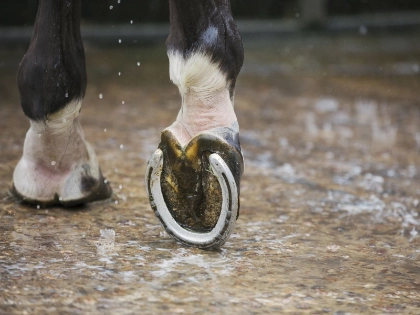Post-Workout Recovery: Maximizing Your Gym Results
During exercise, your body uses up all of its energy reserves. Refueling aids in the strengthening and healing of muscles. Exercise plateaus, extended stiffness, and fatigue are indicators that you're not getting enough recovery time. Refueling is easy. Try these professional techniques instead of just drinking water, stretching, and having a high-protein snack. They'll support you in maintaining your fitness goals and getting the most out of your workouts.
Extending

Drinking Water
 Muscle protein synthesis helps muscles repair and rebuild themselves after strenuous exercise. Your muscles need to be well hydrated for this process to proceed as intended. Dehydration slows down the production of muscle proteins, which causes a delay in the amount of time your body recovers from an exercise.
Sweating causes your body to lose water, which causes vital electrolytes like magnesium, potassium, and sodium to be lost as well. It is essential to replenish these depleted minerals in order to preserve appropriate fluid balance, promote nerve function, and avoid cramping in the muscles. Your post-workout routine may benefit from including an electrolyte-rich beverage, like Actiph water, to promote a quicker, more efficient recovery.
After working out, you should have protein in addition to fluids. This will give your muscles the building blocks they need to heal and function better throughout subsequent sessions. Using a protein powder, like hydrolyzed collagen or whey, is a simple method to start your recuperation off correctly.
Muscle protein synthesis helps muscles repair and rebuild themselves after strenuous exercise. Your muscles need to be well hydrated for this process to proceed as intended. Dehydration slows down the production of muscle proteins, which causes a delay in the amount of time your body recovers from an exercise.
Sweating causes your body to lose water, which causes vital electrolytes like magnesium, potassium, and sodium to be lost as well. It is essential to replenish these depleted minerals in order to preserve appropriate fluid balance, promote nerve function, and avoid cramping in the muscles. Your post-workout routine may benefit from including an electrolyte-rich beverage, like Actiph water, to promote a quicker, more efficient recovery.
After working out, you should have protein in addition to fluids. This will give your muscles the building blocks they need to heal and function better throughout subsequent sessions. Using a protein powder, like hydrolyzed collagen or whey, is a simple method to start your recuperation off correctly.
Nourishment
 For the body to heal from exercise, it needs the right foods. Just as crucial as pushing yourself to the limit on a lift or going faster on your next training run is fueling your body correctly.
Including carbohydrates, protein, and healthy fats in your recovery plan after working out is essential to getting the most out of your exercises and getting better-quality results. High intakes of micronutrients that aid in muscle healing and repair, such as vitamins and minerals, are also recommended.
While protein supplies the amino acids required to repair damaged muscle tissue and promote muscle protein synthesis, carbohydrates restore the depleted glycogen stores in your muscles, giving you the energy you need for your next workout. Incorporating beneficial fats can aid in promoting steady energy levels, enhancing the absorption of specific fat-soluble vitamins, and decreasing post-exercise inflammation.
For a post-workout recovery meal or snack, real foods are preferable than sports drinks and dubious protein powders with a long list of additional ingredients.
For the body to heal from exercise, it needs the right foods. Just as crucial as pushing yourself to the limit on a lift or going faster on your next training run is fueling your body correctly.
Including carbohydrates, protein, and healthy fats in your recovery plan after working out is essential to getting the most out of your exercises and getting better-quality results. High intakes of micronutrients that aid in muscle healing and repair, such as vitamins and minerals, are also recommended.
While protein supplies the amino acids required to repair damaged muscle tissue and promote muscle protein synthesis, carbohydrates restore the depleted glycogen stores in your muscles, giving you the energy you need for your next workout. Incorporating beneficial fats can aid in promoting steady energy levels, enhancing the absorption of specific fat-soluble vitamins, and decreasing post-exercise inflammation.
For a post-workout recovery meal or snack, real foods are preferable than sports drinks and dubious protein powders with a long list of additional ingredients.
Slumber
 It's normal to feel exhausted after working out when you engage in physical exercise. A number of things contribute to the exhaustion, such as modifications to the neurological system that regulates the body's ability to communicate with the brain. The central nervous system fires messages to activate muscles repeatedly throughout exercise. Muscle weariness results from these signals ultimately losing their charge. A build-up of metabolic waste products or a reduction in blood flow to the muscles could possibly be the reason of this exhaustion.
The secret to a successful post-workout recovery is sleep. Rest allows the muscles to regenerate and repair the damage done by training, gradually strengthening and toning the body. Prioritizing sleep is crucial, and you should schedule your intense workouts for days when you know you can get a decent night's sleep. To guarantee that you fall asleep fast and get the most out of your sleep, avoid eating and drinking anything that contains caffeine or other stimulants shortly before bed.
It's normal to feel exhausted after working out when you engage in physical exercise. A number of things contribute to the exhaustion, such as modifications to the neurological system that regulates the body's ability to communicate with the brain. The central nervous system fires messages to activate muscles repeatedly throughout exercise. Muscle weariness results from these signals ultimately losing their charge. A build-up of metabolic waste products or a reduction in blood flow to the muscles could possibly be the reason of this exhaustion.
The secret to a successful post-workout recovery is sleep. Rest allows the muscles to regenerate and repair the damage done by training, gradually strengthening and toning the body. Prioritizing sleep is crucial, and you should schedule your intense workouts for days when you know you can get a decent night's sleep. To guarantee that you fall asleep fast and get the most out of your sleep, avoid eating and drinking anything that contains caffeine or other stimulants shortly before bed.










